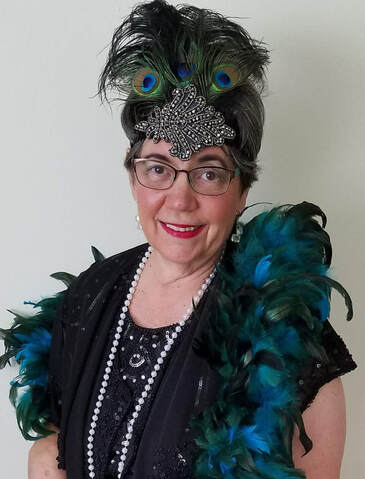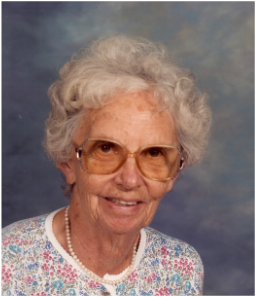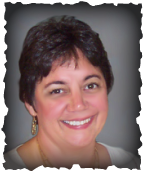|
10/6/2021 Music is a miraculous giftMUSIC IS A MIRACLE FOR ALZHEIMER'S PATIENTS (AND THEIR CAREGIVERS)
In my experience as a singer working specifically with residents in memory care, I have repeatedly seen an almost miraculous "awakening" that occurs when carefully chosen music is sung live with the people who have memory deficits from Alzheimer's or other cognitive decline. It is still, after witnessing it time after time for the past 7+ years, so incredibly moving. I have seen people who are wheelchair-bound and basically unresponsive, lift their head up, open their eyes and begin singing with me. Often staff and family also react to this "awakening" as miraculous, when they see the person still inside and able to respond, sometimes even when they don't know their own name or recognize family anymore. It's a gift of connection that is so precious and amazing! This very powerful aspect of music triggers memories stored in a different part of the brain, usually the last affected. And when it can be activated, the positive effects last for a while, bringing joy to both the individual and their caregiver/family. There are also some excellent programs (MusicandMemory.org) which use the same concept but with technology instead of a live singer. That also has merit and proven benefit to the listener, however, in seeing responses to both live and recorded music, the hands-down best is the live performance because of the vital human connection and interaction with the singer. And, of course, a singer can custom design programs for specific groups or individuals and be responsive to changing them upon getting feedback as to which songs are best received. There is also the aspect of giving eye contact, a warm smile, a touch on the arm, and the energy of the song. When you take into account that most people living in memory care have a full 95% of their time idle, aside from activities of daily living, having a musical "intervention" be it live or through technology can increase connection, quality of life and joy for those living with Alzheimer's Disease or other dementia. For those caring for a loved one at home, music can provide a welcome stimulation and connection via watching favorite musicals on video or streamed, and through the use of a device which can create a custom playlist, such as iTunes or YouTube Music, Amazon Music, etc. The creation of a highly personalized list of favorite songs is essential. Finding just the ones that produce the greatest "happiness effect" and bring pleasant memories back is the goal. Also, if you can add stimulation for other senses, such as photos for visual memory stimulation, and objects for tactile interest -- jewelry, memento from a trip, any other object that has happy memories attached, the effect is multiplied. I highly encourage caregivers, both family and professional, to explore the amazing possibilities and power of music and memory! 9/20/2021 0 Comments Music and memoryI recently came across this very informative video by Dr. Oliver Sacks, a leading expert in the fields of music and neurology. He explains very succinctly how beneficial music is for people with cognitive decline and memory loss, such as for Alzheimer's patients. I have seen this borne out time and again using in-person singing for those in Memory Care. It's truly astounding that some can be reached through music, even though they have lost language skills and most of their autobiographical memory. Check it out. An ounce of prevention is worth a pound of cure. Hello all you fabulous caregivers! I have been taking a bit of a break from writing the blog for a variety of reasons. But, I didn't even post this year on World Alzheimer's Day (September 21st), for the first time since I created the blog 5 years ago. Why, you ask? Because I just couldn't make myself put forth the staggeringly scary statistics about how often someone is diagnosed or about the impacts to a caregiver's life when AD is diagnosed -- again. It felt so overwhelmingly negative that I simply couldn't do it. Now, don't get me wrong. There's a lot of positive research happening, some of which I've been writing about since 2012, but it is now receiving mainstream media attention. For example, both music and meditation have been getting lots of attention, with the Veterans Administration now offering mindfulness meditation to veterans with post-traumatic stress disorder. There are more documentaries, more information flowing, more assistance to caregivers -- all that is truly a wonderful change. But, I felt like a voice crying in the wilderness when I wrote about the one thing that daughters caring for AD parents consider perhaps the most distressing of all when they see their loved one deteriorate before their eyes: will I also have this disease? It's a natural and unavoidable question when we see first hand the ravages of the disease. Until now, the widely promoted information is that Alzheimer's has no cure, and there's nothing much we can even do to slow it down. Grim, right? However, I know there are things we can do to prevent it (check out the rest of this website for that info) and finally, here is some validation that it can also be reversed. Yes, I said reversed. I discovered a series that is airing online right now, for free. It's called Awakening from Alzheimer's and offers video interviews with a dozen experts in various medical and research fields on all kinds of topics related to prevention and reversal of AD through often simple things that most of us can easily do to improve our health, cognition, and well being. In fact, this series has a huge arsenal of tools and some starling new information to empower us to do exactly that. The subtitle, "Where Alzheimer's meets hope" expresses it perfectly. Hope. We all need hope. This information will serve both you and your loved one with AD. Nothing to lose, as it's free, and everything to gain. Check it out. The series is on Day 4 now, so jump on getting registered. I wish I'd had even a small bit of this information during my time as caregiver. But, I'm sure happy to have discovered it now. Even though it's too late to help my mother, I believe it can help millions. Please share it. Hope and empowerment are precious. 9/21/2015 Today is World Alzheimer's Day - remember those who forget and how to avoid becoming one of themI just read an article published in The Guardian, titled "One Third of People Born in 2015 Will Develop Dementia" and I felt a shiver go through me - a mix of disbelief, dread and then a goodly portion of righteous anger. I think every single human with a beating heart who looks at the statistics, those cold, easy to ignore numbers, and applies them to the babies being born now can't help but cry out that we ALL need to do more to address this health crisis. There is a virtual tsunami of dementia coming if we don't find ways to stop it. It will swamp our healthcare system and there will be no where to escape it.
Research is, of course, necessary, and finally receiving some significant attention. But we can do more than that. Those who are children or caregivers of parents/elders with dementia know personally the devastating consequences that it can bring -- emotional, financial, in family relationships, in health of the caregiver. So, that multiplies the shivers by quite an exponential factor. The truth is, there is almost NO one who is untouched by Alzheimer's in some way: whether it be a parent or grandparent, spouse, aunt or uncle, cousin or friend who is losing their personality and memory in excruciating pieces. Julianne Moore recently put a spotlight on the early-onset form of Alzheimer's in her award-winning performance in the film "Still Alice". And there are various groups vying for funds to support the cause in various ways. But I want to talk about what is within our power, each of us, as individuals, to defeat this disease. There's actually quite a lot that we CAN do, aside from shivering in disbelief. Here are some of the most important, scientifically supported ways you can reduce your own risk of developing Alzheimer's disease:
I'm going to stop here, though I could go on at length. The information is here, on this website and many others. I really implore you all to take your power back and act on that which you CAN control. Type II diabetes is at epidemic proportions, and this is something we can treat and reverse. So today, in honor of World Alzheimer's Day, won't you make a commitment to your own health and happiness by taking some steps to avoid Alzheimer's yourself? Do it for your own benefit and also for those who love and depend on you. Do it for your children to set a good, healthy example for them so they don't become one of the three people who will develop dementia. Whatever reason inspires or motivates you, just do it! I believe we all have the right to know what is in our food. Especially when there is evidence that GMO's are carcinogenic and can also be linked to neurological diseases such as Parkinson's, Alzheimer's and autism. Please share this video widely if you also want to know what's in your food. Just label it! |
About Karen
Karen is a compassionate, enthusiastic student of life, who cared for her mother for 17 years. She brings her insights, compassion, experience and desire to share knowledge and healing to this ongoing conversation with others on the caregiving path. If you are caring for a parent, spouse, friend or other loved one this site offers sanity-saving tips, open-hearted self-care ideas, and an open forum for discussion, connection and sharing resources for the journey. Archives
October 2021
CategoriesAll Acceptance Aging Together Alan Cohen Alive Inside Movie Alzheimer's Alzheimer's Prevention A Mind Of Your Own Anxiety Aromatherapy Audio Therapy For PTSD Austin Air Hepa Filter Autism Back Care Video Beginner's Mind Being Present Blessing For Caregivers Books Brain Insulin Butterfly Story Calm Calm.com App Care For Veterans Caregiver Advocate Caregiver Coalition Caregiver Comfort Kit Caregiver Guilt Caregiver Retreat Caregiver's Serenity Prayer Caregiver Stress Caregiver Support Care Giving Caregiving Vulnerability Care In Hospital Caterpillar Into Butterflies Chamomile Tea Cindy Laverty Comedian Computers & Exercise Crisis Dan Cohen Deepak Chopra Delirium Depression Diabetes Disaster Preparedness Distractions Dr. Dharma Singh Khalsa Dr. Oliver Sacks Eden Alternative Eldershire Elizabeth Dole Foundation Emergency Planning Emergency Preparation Emerson End Of Caregiving Enough Already Escapism Essential Oils Food Safety Forgiveness Funny Stories Gaiam.com Gail Sheehy Gift Of Alzheimer Gift Of Healing Presence GMO Food Green House Project Gregory Fricchione Md Grief Guilt Happy Light Healing Holding Hands Home As Sanctuary Hope Hospital Caregiving Hospital Stay Humor Inspirational Reading Ipods For Nursing Homes Isolation Jacksonville James E. Miller John Denver Johns Hopkins Study John T. McFadden Jon Kabat-Zinn Kelly Brogan Kirtan Kriya Meditation Lao Tzu Laugh Laughter Lavender Loneliness Loss Of Purpose Love Love In The Nursing Home Maya Angelou Mayo Clinic Mayo Clinic Alzheimer's Blog MD Meditation Meditation Garden Melatonin Memory Memory Cafe Military Caregiver Mindfulness Meditation Mr. Bean Music Music & Alzheimer Music And Memory Neurological Research Noise Pollution Operation Family Caregiver Opportunity Overnight Respite Care Pandemic Passages In Caregiving Patience Paul Coelho Peace Post-traumatic Stress Disorder Power Of Love Prayer PTSD Quality Of Sleep Radical Contentment Relaxation Releasing Problems Renewal Research Respite Rewind Rodney Yee Rosalynn Carter Rosalynn Carter Institute For Caregiving Rowan Atkinson Sanctuary Sanity Self Care Serenity Silence Sleep Slowing Time Solutions Soothing Music Stress Stress Relief Sun Sunshine Support For Caregivers Tai Chi Thanksgiving The Care Company The Kiss Time Traumatic Brain Injury Travel With Alzheimer's Person Treat VA Caregivers Valentine's Day Verilux Veteran Farms Veterans Veteran Suicide Vitamin D Wayne W. Dyer Wellness Wendell Berry White Noise William H. Thomas Worry Yoga Yoga Video |
Caregiver Wellness
Popular pages on this site:
|
Self-Care Practices
Explore what works for you:
|
Original content © 2012-2023 Karen Bonnell all rights reserved



